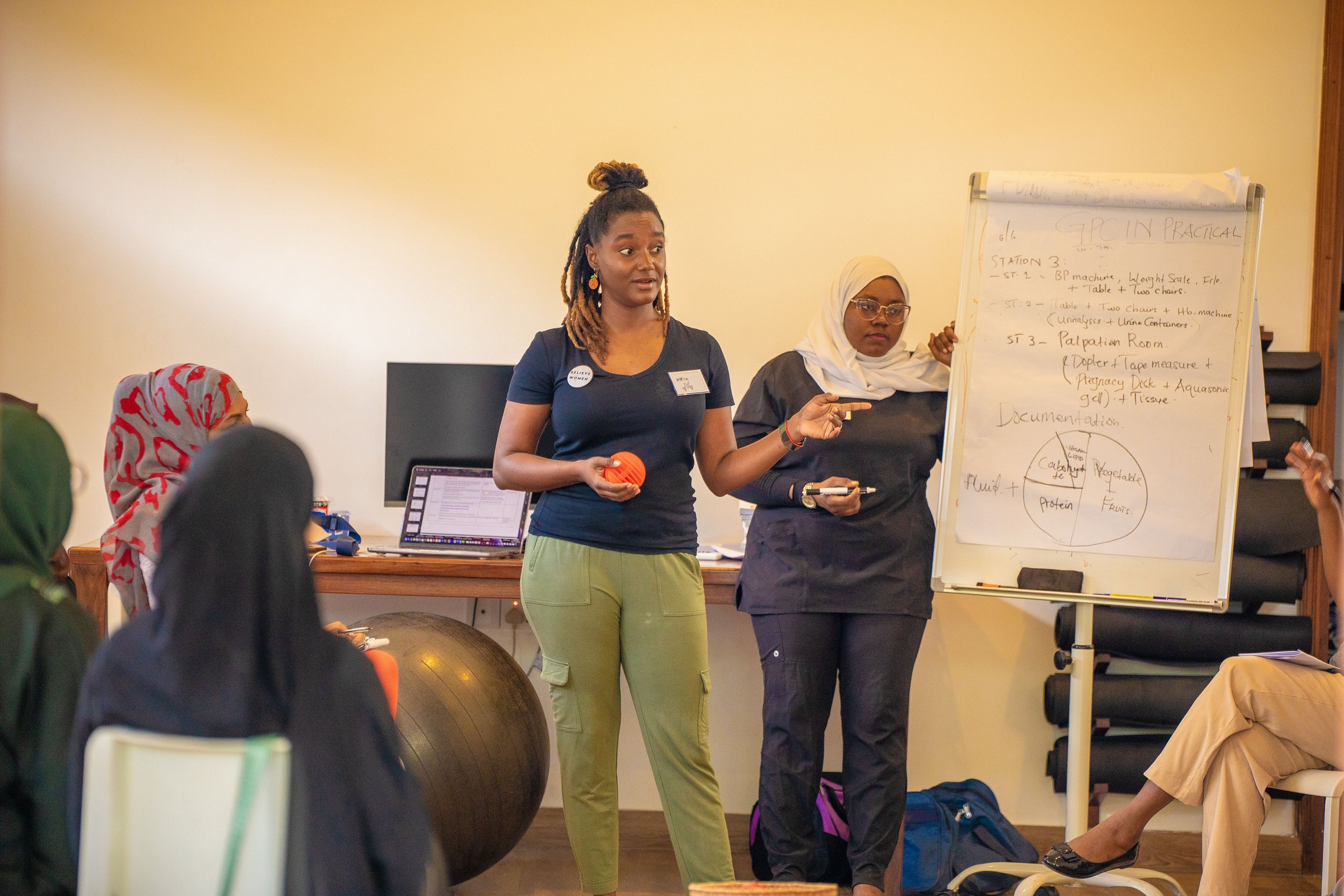The Nurse Midwifery Development class
In its mission to improve women’s health, WAJAMAMA hosts a Nurse Midwifery Workforce Development class.
Every year, approximately 200 nurses graduate into Zanzibar’s healthcare system. However, insufficient pre-service education causes a cycle of substandard care to generate and re-generate. To combat this, WAJAMAMA partners with local universities to coach these graduates to ensure high-quality, dignified, and respectful care for all. In addition to training their practical skills in a world-class simulation lab, WAJAMAMA’s students also follow theoretical classes. This blog will report on one of these theoretical classes.
Early on Monday morning, the doors of WAJAMAMA’s yoga slide open, and the group of midwives arrive. However, rather than immediately starting class, they first participate in a yoga session. Hosted by Ayda, a professional yoga teacher specializing in pre- and postnatal yoga, the session’s benefits are twofold. Besides setting the midwives up to have an energized day, they also learn poses and positions that can help their future patients during labor.
After yoga, the midwives are provided with breakfast. Chairs are arranged in a circle formation, and just as the women are finishing up, WAJAMAMA’s CEO and nurse practitioner Nafisa walks in. The other staff members – including doctors, interns, and the project manager – are already present, and are sitting spread through throughout the room. Nafisa conjures up a yoga ball, sits down, and starts class. After greeting everyone, she invites the midwives to share one thing they remember learning in the previous session.
This week’s class covers the importance of nutrition, both during pregnancy and after birth. On Zanzibar, pregnant women often lack vital vitamins and nutrients during their gestational period, and supplements are unaffordable to most prospective mamas. Taking a holistic approach, Nafisa encourages the midwives to research which foods provide these necessary nutrients, and soon they find that avocado, leafy greens, and eggs – all widely available on the island – contain the nutrients pregnant women need.
In the second half of class, Nafisa discusses breastfeeding. On the island, not a lot of babies get breastfed, receiving formula or cow milk instead. After delivery, babies immediately get given formula milk, which fills them up and causes them to not latch onto the breast. This results in the mother’s milk flow never getting the impulses it needs to get started, forcing mothers to rely on other sources of milk.
Educating midwives is an important part of WAJAMAMA’s mission, but the Nurse Midwifery Workforce Development class and its enthusiastic members can have an even further reach than that. On Thursday, the group will be visiting the inlands of Zanzibar to monitor pregnant women’s health, inviting them to join Group Prenatal Care. Participation is completely free, and 96% of past participants reported optimal pregnancy, labor, and birth outcomes.
However, for WAJAMAMA to continue hosting Nurse Midwifery Workforce Development classes and Group Prenatal Care, the organization needs support. Consider helping WAJAMAMA grow by liking and sharing this blog post, and keep an eye out for next week’s post, which will cover the midwives’ visit to the island’s inlands.
Written & published by Sophie Hudson, WAJAMAMA Intern
Photos taken by Light Palmer





